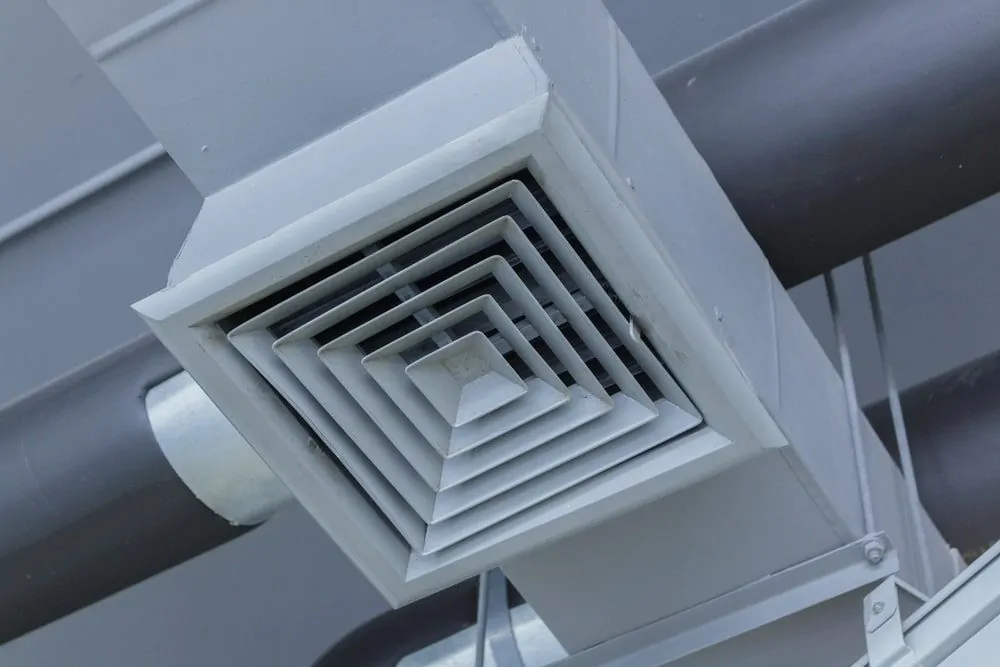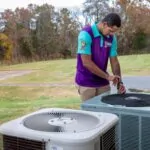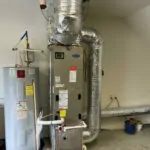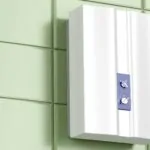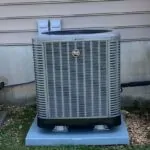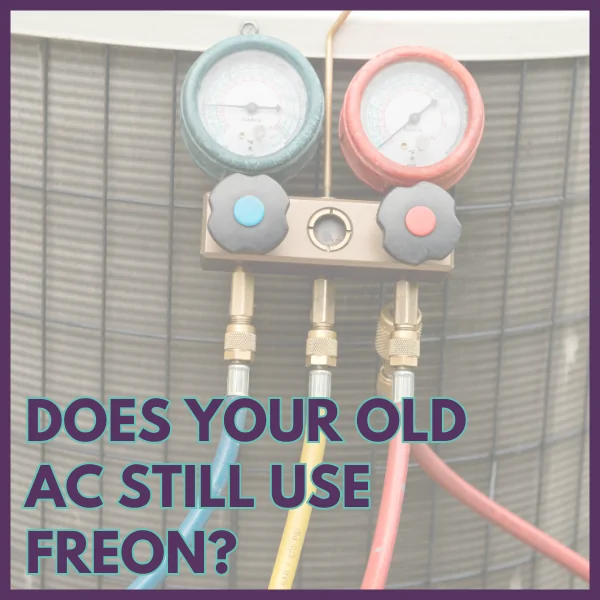
We’ve been working in the Charlottesville, VA area for years, and have worked with all sorts of different AC systems. In the past, pretty much every air conditioner used Freon, but today, it’s changing quickly.
This article is going to talk about what Freon is, and what you should consider if you have an air conditioner that uses R-22 Freon. If you’d like to speak to an expert about your air conditioning, give us a call at (434) 295-3121, or reach out to us online. We’d be happy to help you stay cool in your home or business!
What Is Freon (R-22)?
Freon, commonly known as R-22, is a type of hydrochlorofluorocarbon (HCFC) used mainly as a refrigerant in air conditioning systems, refrigerators, and other cooling appliances. It was developed in the early 20th century, and became the standard for residential and commercial air conditioning units for years.
Freon works by cycling through the air conditioning system, absorbing heat from the indoor environment and releasing it outside. This process involves the refrigerant transitioning between liquid and gas phases, facilitating heat exchange. The process is very safe, and for years was viewed as the best solution to cooling homes and commercial buildings.
Why Is Freon Being Phased Out?
Even though R-22 worked well for years, once scientists did more research, it was found to have significant environmental drawbacks. When released into the atmosphere, HCFCs like R-22 contribute to ozone layer depletion and have a high global warming potential (GWP).
The phase-out of Freon (R-22) is primarily due to its environmental impact. Now that we know the harm that Freon usage causes the ozone, it is important to stop using it, and look for an alternative. That’s why the U.S. put a ban on the importation and production of Freon in 2020.
The Montreal Protocol
In 1987, the Montreal Protocol was established, an international treaty designed to phase out the production and consumption of ozone-depleting substances (ODS). R-22, being an HCFC, was targeted under this treaty. The protocol has been amended multiple times to accelerate the phase-out schedules for various ODS, including R-22.
Regulatory Actions
In the United States, the Environmental Protection Agency (EPA) has implemented a stepwise reduction in the production and import of R-22, culminating in a complete ban on its manufacture and import from January 1, 2020. This phase-out plan includes the recovery and recycling of existing R-22 supplies to service older systems, but no new R-22 can be produced or imported. Similar measures have been adopted globally, aligning with the goals of the Montreal Protocol.
What Should I Do If My AC Uses R-22 Freon?
So this means that if your AC uses R-22 Freon, you do not need to replace your AC system, BUT, it may be very expensive to repair it if it has a leak or breaks down. Air conditioners that use Freon aren’t banned from use. It’s simply becoming harder and harder to get Freon if your system needs it.
So what should you do if your AC system uses R-22 Freon?
Assess Your Current System
If your system is working fine, and you aren’t seeing any issues, continue to use it! If the system runs into some problems, like a refrigerant leak or some sort of breakdown, then you should start considering replacing the system with a newer unit that uses more environmentally friendly technology.
Retrofit Options
In some cases, retrofitting your existing AC system to use a more environmentally friendly refrigerant may be a viable option. Retrofitting involves modifying the system to accommodate a different refrigerant, such as R-410A, also known as Puron, which has a lower GWP and does not contribute to ozone depletion. However, this process can be complex, expensive, and doesn’t work for every air conditioning system.
We recommend having a professional give you their opinion when they perform regular AC service. They should be able to inspect your system and let you know what the best route is for either retrofitting, replacing, or sticking with the current AC.
Replacing An AC That Uses Freon
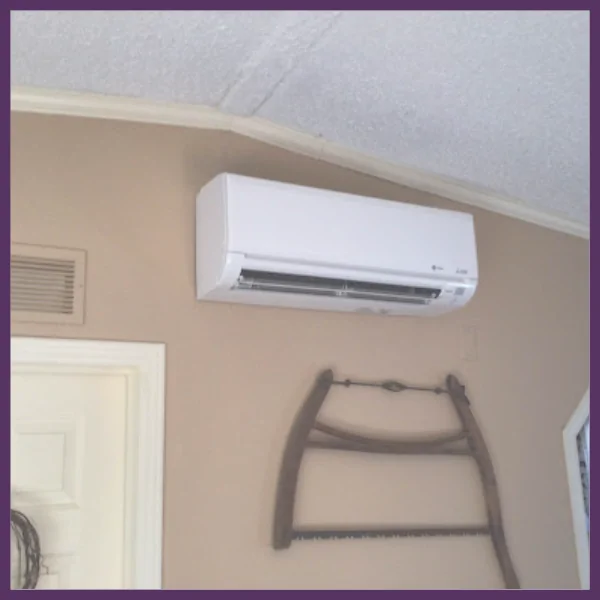
Heat Pump Systems
One of our favorite options to replace your old Freon air conditioning system is a heat pump. These systems can provide both heating and cooling, and do so using a heat transfer process that is very similar to how an AC works. These systems are EXTREMELY energy efficient, and can help lower your energy bills while also providing top tier comfort.
Ductless Mini Split
A ductless mini split is a different kind of heat pump that breaks your home into different “zones” that can be cooled and heated independently. The condenser outside is attached to mini split heads or cassettes inside. Each zone is treated separately, allowing you to really customize the comfort in your home, and also save energy in the process.
Traditional Central AC
You may also want to consider a traditional air conditioner. This is likely the cheapest option, and will be able to provide consistent cooling throughout your home. Newer ACs are also energy efficient, and will likely lower your energy bills compared to your old Freon system.
What Factors Should You Consider?
When selecting a new air conditioning system, consider factors such as the size of your home, your cooling needs, and your budget. Check out the different kind of systems we mentioned above and get a feel for the type of air conditioner you want.
You should also look for systems with high Seasonal Energy Efficiency Ratio (SEER) ratings, as they are more efficient and can provide significant energy savings over time. Additionally, consider features like smart thermostats, which can help you save energy while providing perfect cooling for your home.
Incentives and Rebates
One way to save on new HVAC equipment is by taking advantage of tax credits and rebates. Many government programs and utility companies offer incentives and rebates to encourage the replacement of old, inefficient air conditioning systems with newer, more energy-efficient models. In an effort to reduce the amount of energy we consume, incentives like this are used to offset some of the initial installation costs, and encourage homeowners to make the swap!
Replacing Your AC IN Charlottesville, VA
If you have an old Freon AC and are thinking of making the swap, let us know! We can come out and take a look at your AC, and make some recommendations for a new AC system. Give us a call at (434) 295-3121, or contact us online!

